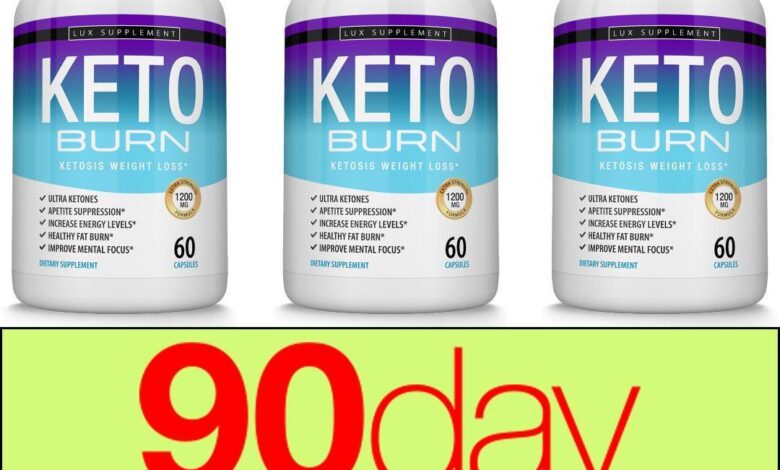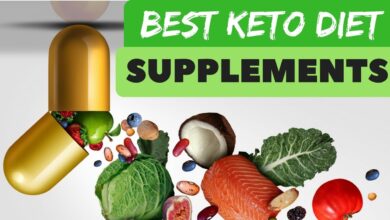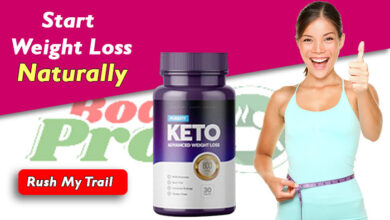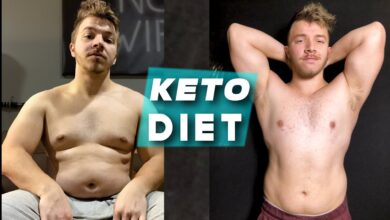
Are you on a keto diet and wondering how to take it up a notch? Maybe you’ve already slashed carbs, boosted healthy fats, and watched the scale inch down—but now you’re looking for that extra edge. That’s where keto supplements come into play. In this deep-dive blog post, we’ll explore 10 top-tier keto supplements, unpack how they work, who they’re for (and who they’re not), and how to integrate them into your weight-loss journey with confidence and clarity.
Let’s jump right in.
CHECK ALSO7 Best Keto Supplements for Weight Loss and Energy: Boost Fat Burn & Vitality
Understanding the Keto Diet & Why Supplements Can Help
What is the Keto Diet?
The ketogenic diet (or “keto” for short) is a high-fat, moderate-protein, ultra-low-carbohydrate eating plan that shifts your body’s metabolism. Instead of relying on glucose (from carbs) for energy, you transition into burning fat and producing ketones—compounds your liver makes when carbohydrate intake is very low. When your body produces enough ketones, you’re in a state called ketosis.
Why do people love keto for weight loss? Because when your body uses fat for fuel, it tends to reduce fat reserves over time. Also, many folks report better energy, fewer cravings, and a sense of clarity once adapted. But—and it’s a big “but”—that transition isn’t always smooth. Many dieters hit road-blocks like fatigue, low energy, “keto flu,” digestive issues, or a slow plateau. That’s where supplements can help smooth the ride and accelerate results.
Why Use Supplements on Keto?
Supplements aren’t magic pills. They won’t replace a smart diet, movement, sleep and hydration. But they can support your journey. Here are some reasons you might consider them:
- You’re adapting from higher-carb to low-carb and your body needs support (think electrolytes, digestion, energy).
- You want to maintain muscle mass while losing fat.
- You want to boost fat-burning, enhance ketone production or ease side-effects.
- You’re looking for nutrient insurance—because some vitamins/minerals may become harder to get on very low-carb.
For example, one trusted review listed MCT oil, omega-3 fatty acids, vitamin D, digestive enzymes, exogenous ketones and electrolyte supplements as beneficial for keto followers. (Healthline)
A Word of Caution Before You Jump In
Not all supplements are created equal. As the credible site Verywell Health points out: “In the United States, the Food and Drug Administration (FDA) does not regulate dietary supplements the way it regulates prescription medications.” (Verywell Health)
This means you must approach wisely:
- Choose brands that have third-party testing or certifications.
- Be aware of side-effects (especially if you have health conditions).
- Realize that supplements support—not replace—good keto habits.
- Always speak to your doctor, especially if you’re on medication or have underlying conditions.
The Top 10 Keto Supplements You Should Know
Here’s a detailed guide to each of the top ten supplements, how they work, who they’re best for, recommended use, and things to watch out for.
1. MCT Oil (Medium-Chain Triglycerides)
What it does: MCT oil is a type of fat that your body can rapidly absorb and turn into ketones. Research shows that MCT oil “can help ketogenic dieters since it can quickly up your fat intake, which increases ketone levels and helps you stay in ketosis.” (Healthline)
How it supports weight loss: Because MCTs are metabolized differently than long-chain fats, your body can use them more readily for energy rather than storage. They may also increase feelings of fullness (satiety), which helps curb snacking or grazing. For someone on keto in the US, Ghana, or Europe, adding MCT oil to a morning smoothie or coffee can give a fuel boost and help you stay on track.
How to use: Start small – for example, 1 teaspoon (about 5 ml) in coffee or a shake. Gradually increase to 1–2 tablespoons per day as tolerated. Mix it into foods rather than cooking at high heat (unless specified).
Watch-outs: Some people experience digestive upset (diarrhea, stomach cramp) when starting MCT oil. Also, remember it still adds calories, so you must account for that in your daily macro balance.
2. Exogenous Ketones (BHB Salts / Esters)
What it does: Exogenous ketones are ketones supplied externally rather than produced by your body. They raise your blood ketone levels and potentially aid energy, appetite control, or transition into ketosis. (Wikipedia)
How it supports weight loss: By raising ketone levels, you might feel more energetic, curb cravings and support fat-burning. Some studies suggest they may help you switch into ketosis faster.
How to use: Many formulas contain BHB salts or esters. Follow the manufacturer’s guidelines (often before or with meals). Use during adaptation phases or when you’re stuck in a plateau.
Watch-outs: They’re not a substitute for true ketosis via diet. Evidence is still limited. Some people feel gastrointestinal discomfort. Also, cost is high and you may get diminishing returns if used all the time.
3. Electrolyte Supplements (Magnesium, Sodium, Potassium)
What it does: When following a keto diet, you often lose more water and electrolytes (especially early on) because lower insulin levels mean less water retention. This can lead to headaches, cramps, fatigue (“keto flu”). (Verywell Health)
How it supports weight loss: Better hydration, less fatigue, fewer side-effects means you can stay consistent with your diet and exercise. When you feel good, you stick to the plan.
How to use: Consider adding magnesium (200-400 mg/day), ensuring you’re getting enough sodium (e.g., adding a pinch of salt or broth), and including potassium-rich low-carb vegetables or specific supplements. Check labels and dosage.
Watch-outs: Electrolyte imbalance can be serious if you have kidney issues or are on diuretics. Always check with your doctor.
4. Omega-3 Fatty Acids (Fish Oil / Krill Oil)
What it does: Omega-3s (EPA & DHA) support inflammation reduction, heart health, and they may improve your fat-metabolism ratio via keto diets. (Healthline)
How it supports weight loss: When following a high-fat keto diet, it’s easy to skew in the wrong types of fat. Omega-3s help keep you in a healthier fat balance, support metabolic health, and may assist in fat loss indirectly by reducing inflammatory load.
How to use: Look for high-quality fish or krill oil that provides at least 500 mg combined EPA & DHA per 1000 mg serving. Use as directed, ideally with a fat-based meal for better absorption.
Watch-outs: If you’re on blood-thinning medication, omega-3s may increase bleeding risk. Also, ensure purity (no heavy metal contamination).
5. Vitamin D (and Bone/Mineral Support)
What it does: Vitamin D supports immune health, mood, bone strength, and may become low on restrictive diets. As noted, deficiency is common. (Healthline)
How it supports weight loss: When your body is under stress (dieting, low carb), ensuring your vitamin-D and mineral status is optimal means you maintain energy, mood, strength—so you’re less likely to slip into fatigue and abandon your plan.
How to use: Get your blood levels tested when possible. Many adults benefit from 1000-2000 IU/day, but personalized dose is better. Take with a fat-based meal for absorption.
Watch-outs: Too much vitamin D without monitoring can lead to calcium raising and complications. Don’t exceed safe limits without doctor guidance.
6. Digestive Enzyme / Lipase Supplements
What it does: Shifting to a very high-fat diet (as keto often is) can sometimes challenge your digestive system. You might notice bloating, nausea, diarrhoea or heavy-feeling meals. Digestive enzymes (lipase, protease) help your gut break down fats and proteins. (Healthline)
How it supports weight loss: Better digestive comfort = better adherence. If you dread meals because your stomach rebels, you’ll likely cheat or revert. Enzymes can ease the transition and help you reliably eat healthily.
How to use: Choose an enzyme supplement tailored to fats/proteins. Use with your largest high-fat meal, following the package instructions. Don’t rely solely on this—gut health, fiber, hydration matter too.
Watch-outs: If symptoms persist, you have a digestive disorder or gallstone history, consult your doctor. Not a substitute for medical care.
7. Keto-Friendly Protein Powders (Low-Carb / High-Quality Protein)
What it does: When restricting carbs, sometimes total energy falls. Also, when losing weight, you risk losing lean muscle mass. Low-carb, high-quality protein powders (e.g., whey isolate with minimal carbs) help meet your protein needs without sabotaging ketosis. (Verywell Health)
How it supports weight loss: Preserving muscle boosts metabolism, helps fat-loss, and supports strength training. If your body is burning fat but also shredding muscle, your overall progress suffers.
How to use: Pick a protein powder with <3 g carbs per serving, high bioavailability, and ideally clean ingredient list. Use as a shake post-workout or when you need convenient protein. Pair with healthy fats to suit keto.
Watch-outs: Some powders contain hidden sugars or fillers. Always check macros. Also, whole foods are preferable—supplements support not replace.
8. Greens Powders (Low-Carb Vegetable / Plant Blends)
What it does: On keto, many folks reduce fruit and vegetable intake (to keep carbs low). That can reduce fiber, micronutrients and plant-based phytochemicals. Greens powders (spinach powder, kale, chlorella, spirulina) help bridge the gap. (Healthline)
How it supports weight loss: Good nutrient status supports metabolism, immune function, detoxification and overall vitality—all of which help you stay consistent and perform better. It’s like adding a green “insurance policy” into your regimen.
How to use: Choose a low-carb greens powder (check carbs/sugars). Add to water, smoothie (with fat like MCT oil or avocado) or keto-friendly breakfast. Use daily or at least on days you know veggie intake is low.
Watch-outs: These are supplements—not replacements for food. Some people may experience taste/texture issues or loose stools. Fiber from real veggies still necessary.
9. Conjugated Linoleic Acid (CLA) / Fat-Metabolism Promoters
What it does: CLA is a fatty acid supplement often marketed for fat-loss. While research is mixed, some studies suggest modest effects on fat mass and lean mass. On keto, when fat intake is high, supporting efficient fat metabolism may help.
How it supports weight loss: The theory: CLA may help shift body composition (more lean, less fat) when combined with diet + exercise. On keto, you already have high fat intake—so supporting fat metabolism may enable better outcomes.
How to use: If you choose CLA, pick a reputable brand, dosage often 1.8-3.4 g/day, split among meals. Combine with resistance training for best results.
Watch-outs: Evidence is less robust compared to other supplements listed. Always prioritise diet and exercise. Some GI side-effects possible. Consult healthcare provider if you have liver disease or are on medication.
10. Intermittent or Targeted Use “Fat Burner” Supplements (with caution)
What it does: These supplements combine stimulants (like caffeine), MCTs, thermogenic ingredients or keto blends advertised for accelerated fat-burn. For example, a product called “Keto Weight Loss™” uses BHB salts + caffeine + MCTs. (BPI Sports)
How it supports weight loss: Used strategically (not daily habitually), these can give you a metabolic “boost”, improve focus, help lift your workout or get you through a plateau. Think of them as fire-starter rather than fuel tank.
How to use: Use only if you tolerate stimulants, have no contraindications (heart issues, high blood pressure, thyroid issues). Reserve for training days or plateau-break days, rather than every single day. Start with half dose to assess tolerance.
Watch-outs: This category has the most “hype”. Some products overpromise and underdeliver. Safety concerns if stimulants too high. Not a long-term replacement for solid diet/exercise. Research is weaker; proceed with caution.
Putting It All Together — How to Select & Use Supplements Smartly
Step-by-Step Guide to Choosing Your Supplements
- Define your goal: Is your aim rapid fat loss? Plateau break? Better energy? Muscle retention? Knowing your primary goal guides selection.
- Assess your baseline: Are you new to keto? Are you feeling fatigued, side-effects, nutrient-deficient? Use this to prioritize (e.g., electrolytes if keto-flu; protein powder if muscle loss risk).
- Check quality & certification: Look for third-party testing (NSF, USP). Read label: macros, filler ingredients, carb content, stimulants.
- Start low, monitor response: Introduce one supplement at a time. Track how you feel, energy, digestion, weight/fat change, mood.
- Adjust macros accordingly: Supplements add calories too. If adding MCT oil daily, your fat intake must reflect that.
- Pair with solid basics: None of this works if your diet is shaky. Eat adequate protein, healthy fats, fibre from low-carb veggies, keep hydrated, maintain sleep.
- Re-evaluate regularly: At 4-6 weeks, check progress. Are you still plateaued? Are you tolerating it? Do you need to scale back?
Timing & Synergy — When to Take Them
- Morning fuel: MCT oil in coffee; greens powder; electrolyte drink to kickstart the day.
- Pre/post-workout: Protein powder, maybe a fat-burner on training days.
- Meals with high fat: Digestive enzymes; omega-3 with food.
- Transition phases: Exogenous ketones while adapting to keto; electrolytes during first 1-2 weeks.
Avoiding Pitfalls & Mistakes
- Relying solely on supplements: A frequent mistake is thinking “if I just take X supplement, I’ll lose weight.” Diet & exercise still rule.
- Ignoring side-effects: Nausea, stomach upset, jitteriness, sleep issues—listen to your body.
- Over-stacking: More isn’t always better. If you’re using 5+ supplements daily, the cost, complexity and interaction risk go up.
- Neglecting electrolytes/hydration: On keto especially, ignoring sodium/potassium/magnesium is a fast track to fatigue.
- Carb creep: Supplements may mask poor diet. If you eat hidden carbs, ketosis may be disrupted regardless of pills.
Case Studies & Real-Life Scenarios
Scenario 1 — Beginner on Keto from Ghana / Africa
Imagine you live in Ghana, you’ve just switched to keto. You’re dealing with the “keto flu” – fatigue, headaches, cravings for plantain and rice. In this case:
- Prioritize electrolytes & hydration.
- Add MCT oil to your morning drink to give energy.
- Use a greens powder to offset lower veggie variety while you adjust.
- Get a clean vitamin D supplement (sun is good but you may still benefit).
This combination gets you through adaptation. Once you feel stable, you could layer in a good omega-3 supplement and a low-carb protein powder to support muscle.
Scenario 2 — Plateauing in United States / Europe
You’ve been on keto for 3-4 months in the US/Europe, your weight loss has stalled but you’re consistent on diet and exercise. Here:
- Consider an exogenous ketone or targeted fat-burner (on training days) to break plateau.
- Ensure you’re taking CLA or making sure your protein is high quality to preserve lean muscle.
- Reassess your MCT oil quantity and overall calorie intake—maybe you’re eating too many “keto-friendly but calorie-dense” foods.
- Stay strict on macros, check hidden carbs (sauces, dressings) creeping up.
Scenario 3 — Busy Professional in Europe with Minimal Time
You’re in London, Berlin or Paris, tight schedule, travel often, fluctuating meals. You want simplicity. In this case:
- Use a low-carb protein powder for convenience.
- Pack a greens powder for when you skip veggie-rich meals.
- Keep a small jar of MCT oil or MCT-infused snack/lunch to structure your fat intake.
- Keep a basic electrolyte formula in a travel-friendly format for when your routine is disrupted.
In each scenario, supplements serve as “support tools,” not “crutches.” They make the journey smoother—but you still steer.
Budgeting & Cost-Effectiveness for Global Users
How Much Should You Budget?
Supplements vary widely in price depending on country. If you’re in the US, UK or Europe, you may pay more than in Ghana or other African countries (due to import, shipping, currency). Here’s a rough breakdown:
- MCT oil: mid-range cost.
- Greens powder: sometimes premium cost but small daily dose.
- Protein powder: variable (premium brands cost more).
- Exogenous ketones and fat-burners: typically higher cost.
Prioritize Based on Need & Value
If budget is tight, prioritize the “big wins” first—supplements that will give you immediate noticeable benefit and support your consistency. For many, that’s:
- Electrolytes + hydration (cheap, high impact).
- Protein powder (especially if you struggle to get enough protein).
- MCT oil (relatively cost-effective).
Then, if budget allows, layer on omega-3s, greens powders, exogenous ketones or fat-burners.
Tips to Save Money
- Buy in bulk or subscribe to save.
- Choose reputable generic brands.
- Watch shipping/import costs if you’re in Africa; local availability may reduce cost.
- Check for deals, discount codes, cross-border shipping specials.
- Evaluate ROI: if you’re not noticing mood/energy/fat-loss improvement after 6-8 weeks, maybe pause and reassess rather than keep buying more.
Monitoring Progress & Safety Considerations
What Metrics Should You Track?
- Weight and body-fat percentage (or measurement tape) every 2-4 weeks.
- Energy levels: do you feel better or worse?
- Digestion and side-effects: bloating, discomfort, changes in stool.
- Ketone levels (optional): If you have a ketone meter, see if supplements are raising ketones.
- Sleep and mood: As you adjust, supplements shouldn’t cause insomnia or jitters.
Safety & Contraindications
- If you’re pregnant, breastfeeding, have kidney or liver issues, heart conditions, always talk to your doctor before taking multiple supplements.
- Supplements are not FDA (or equivalent) approved for weight loss; they help but are not guaranteed.
- Be cautious with stimulants (fat-burners especially) if you have high blood pressure or thyroid issues.
- Keep your diet and lifestyle strong—the supplement is the supportive cast, not the star.
When to Stop or Adjust
- If you experience persistent side-effects (GI distress, insomnia, heart palpitations) stop and reassess.
- If you’re not seeing progress after 8–12 weeks, pause and evaluate diet/exercise rather than keep stacking more supplements.
- If your health profile changes (new medication, illness) revisit your supplement plan.
Below is a detailed FAQ section covering common queries. (Full answers at the end.)
Real Life Success Stories & Motivation
Real People, Real Results
Hearing others who’ve walked the path can inspire you. Imagine someone in Johannesburg who started keto, struggled with morning fatigue, added MCT oil and electrolytes and within a month felt sharper, lost 3 kg, and regained focus at work. Or someone in New York who hit a plateau for 6 weeks, introduced exogenous ketones on training days and broke through, losing persistent belly fat.
Mindset Shift – Supplements Are Tools, Not Miracles
Think of supplements like the appropriate lubricant for a car engine. The diet/exercise is the engine. Supplements help things run smoother, reduce friction, improve efficiency—but they don’t make the engine run goals by themselves. Stay consistent, keep your macros aligned, move your body, sleep well, hydrate. Use supplements to support that foundation—not replace it.
The Long Game
Weight-loss success doesn’t come overnight (most sustainable weight loss happens gradually). Supplements can accelerate or assist—but you’re building habits for a lifetime. Use this period to learn what your body responds to, what you tolerate, and how to maintain progress long-term.
Conclusion
Embarking on a keto journey for weight loss? Great move. Adding smart supplements can give you more energy, smoother adaptation, better body composition and fewer side-effects—especially if you choose wisely based on your goals and circumstances. From MCT oil and electrolytes to protein powders and targeted fat-burners, the ten supplements we covered offer something for beginners, plateau breakers and seasoned keto followers alike.
Remember: quality of diet, consistency in exercise and good sleep/hydration still rule. Supplements amplify—not replace—those foundations. Choose trusted brands, monitor how your body feels, adjust when needed, and keep realistic expectations. You’re building not just a diet, but a healthier lifestyle.
Stay consistent, stay strong—and watch your results unfold.
CHECK ALSO Seven Inspiring Keto Weight Loss Success Stories That Will Motivate Your Journey
FAQs (with answers)
1. Can I just take keto supplements and forget the diet?
No—while keto supplements can support your journey, they are not a replacement for a proper ketogenic diet. You still need to follow a low-carb, high-fat, moderate-protein plan, maintain hydration, exercise and get enough sleep. Supplements are there to support your effort, not do the heavy lifting for you.
2. How long until I see results with these supplements?
Results vary: beginners may notice energy/improved digestion within 1–2 weeks once they add electrolytes or MCT oil. Fat-loss results typically show over 4–8 weeks when combined with diet/exercise. Plateau-breaking supplements may show effect in training days or daily patterns. Monitor consistently and adjust as needed.
3. Are keto supplements safe for people in Africa/Asia/Europe too?
In general yes, but you must consider local factors: supplement quality may vary, import/shipping costs differ, and local regulation may be weaker. Always purchase from reputable suppliers, check certifications and speak to a healthcare provider if you have health conditions or take medication.
4. Do I need all ten supplements at once?
Not at all. It’s better to prioritize based on your current need (e.g., electrolytes first if you’re fatigued, protein powder first if muscle is your concern). Once you’re stable and budget allows, you can layer others. Over-stacking can cost more and create unnecessary complexity.
5. Can I stop using the supplements once I reach my goal?
Yes—you can adjust your use. Once you’re stable and results are ongoing, you may shift to a minimalist approach, relying mostly on diet and lifestyle. Some supplements (like omega-3 or vitamin D) may remain beneficial long-term. Always reevaluate and ensure your body is functioning well before stopping anything abruptly.
Thanks for reading—here’s to your successful keto journey and achieving your weight-loss goals confidently!




